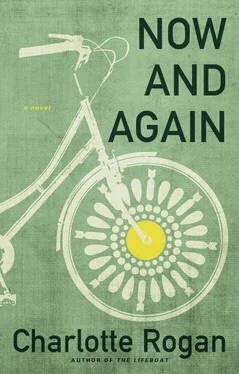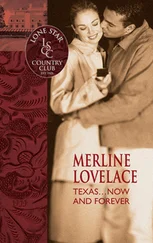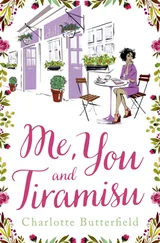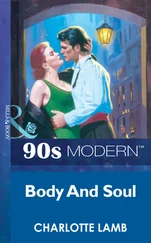When Maggie still didn’t say anything, the woman said, “So Dino is the one you like?”
“Isn’t it more important that the dog like me?” asked Maggie. “It wouldn’t seem right to send him home with someone he isn’t comfortable with.”
“Not that you’re headed home,” said the woman. She rang a little bell that sat on the table in front of her and added, “The dogs are all very friendly. If they weren’t friendly, they wouldn’t be candidates for adoption.”
“What happens to the unfriendly dogs?” asked Maggie.
“Most of the dogs are friendly,” said the woman. “Really, almost all. But where is Peggy?” She rang the bell again, and this time a person with an oily ponytail and frizzy bangs entered the room holding a nylon leash. “It’s been wonderful chatting with you,” said the large woman. “Now, if you’d like to meet Dino, I can have Peggy introduce you.”
Maggie followed Peggy through a door into a room lined with tiered rows of steel cages. As soon as the women entered, the dogs in the cages started to bark and pace back and forth in the tiny space allotted to them. Maggie was immediately reminded of the prison. “Oh my goodness!” she exclaimed. Suddenly it didn’t seem right to leave Dino in a cage when she could so easily do for him what she might never be able to do for Tomás or George. She mentally added the vet bill to the adoption fee to the donation and came up with sixty-five dollars. Dino was a mere sixty-five dollars from being free — she couldn’t turn her back on him now!
“Don’t look straight at him,” instructed Peggy, handing her a bone-shaped biscuit. “He will interpret that as a threat.”
Maggie turned sideways and stretched out the hand that held the treat. “Hello, Dino,” she said, but just as Peggy was trying to coax the dog out of his cage, a logical corollary occurred to her: the same could be said of all the dogs incarcerated there. Sixty-five dollars would free each and every one of them, and there was nothing, really, to distinguish Dino from the rest of them except that his card had been on the top of the stack. What if some of the other dogs were more deserving? She should probably choose the one that was poking its nose out between the bars of the cage rather than slinking into a corner the way Dino was doing. Or the one that was happily wagging its tail. But then she stopped herself. She had already exhausted the subject of merit and rights in thinking about Tomás. A creature shouldn’t have to earn its freedom, so being more or less deserving didn’t come into it. Besides, what if Dino’s card had been on top for a reason? But still she stood paralyzed by the grooming table, and only when Peggy called out, “Here he is!” did Maggie close her mind to further thought.
“Crouch down like this,” said Peggy, dropping to a squatting position. “And hold out your hand for him to sniff.”
The large woman trundled into the room with some paperwork for Maggie to sign. “The Catholic Charities is in an old church,” she said. “I’ve written down the address right here on your adoption agreement. If they don’t have room for you tonight, at least you can get on their list for tomorrow. And here is a starter kit with some dog food, a complimentary water bowl, and, of course, a leash.”
Maggie squeezed the dog’s things into her luggage and put the adoption papers into her pocket with the map. “I never thought of myself as a dog owner before,” she said.
“Guardian,” said the woman. “Owner isn’t a word we like to use.”
9.2 Maggie
Dino lumbered along at Maggie’s side as she walked north and then west into the setting sun. Whenever she passed a couple walking hand in hand, she wished Lyle were there to see the palm trees and the pretty red-tiled roofs and the line of muscled mountains that turned from pink to purple in the fading light. Now that the sun wasn’t beating down from above, the source of heat seemed to be the sidewalk beneath her feet, and she wondered again if the earth was the living thing and if all of its creatures were merely parts of a larger organism. Every now and then Dino sat down, so Maggie would stop to catch her breath and consult the map before encouraging him forward with gentle tugs of the leash.
It was nearly dark when she found herself in front of an old stone church. The spires and arches and leaded windows set Maggie’s heart to soaring until she remembered something her mother had said about how steeples were meant to strike fear into the hearts of wandering marauders by resembling giant swords. Even churches are weapons, she thought. When a security fixture mounted on an adjacent building came on, throwing daggers of light between the etched black branches of the trees that grew in the space between the buildings, she made her way up the pitted stone steps and tugged at the heavy door, but it was locked. “It will take more than that to foil our plan,” she said to Dino, who looked as if all of his plans had been foiled long ago.
She felt her way along a narrow path that led through a tangled garden, past a statue of Saint Francis and a dry fountain where concrete birds had come to drink, and then through a weedy plaza where the path abruptly ended. Maggie found herself facing a crumbling wall topped with a spiky iron fence. Just when she was about to retrace her steps, she noticed a small sign that was only visible because the security light was shining directly on it. The sign said DELIVERIES AROUND BACK, and an arrow pointed to a gap in the wall she hadn’t noticed in the darkness. Maggie scrambled through the gap and found herself in a dank courtyard where a series of concrete steps led down to a grimy basement door.
Before trying the door handle, Maggie whispered, “If God wants me to find Sandra Day O’Connor, the door will open.” Dino took a step forward at the sound of her voice, but he jumped back again when the door sprang open. “If God wants me to free Tomás and George, there will be a place for us to sleep,” Maggie said to Dino as they slipped inside.
The church basement was windowless and dark, but as her eyes adjusted, Maggie could make out an opening, and through the opening, a narrow stairway led up to a landing where a small window allowed some of the security light to filter through. Just off the landing was the sacristy, complete with a tiny bathroom and running water, and through the sacristy, the sanctuary and long, narrow nave of the church. Maggie’s footsteps rang out on the stones of the center aisle, and her heart nearly stopped when a cat jumped from a pew and hissed at her. Dino’s ears pricked for an instant and then flopped back against his head. Maggie searched in vain for signs of the Catholic Charities, but except for the cat, the church appeared to be abandoned.
“This can’t be right,” she said to Dino. “Unless we’re in the wrong place, or unless the Catholic Charities has moved.”
Maggie’s feet hurt. It had been nearly twenty-four hours since she had left home, and her heart sank at the idea of having to find another place to sleep. She sat on one of the pews and said a little prayer. Just as she said, “Amen,” it occurred to her that she was in the right place after all. Ever since getting off the bus, her moves had been anything but random: the protesters had frightened her into crossing the street; the tour guide had called, “This way, this way,” as if he had been waiting for her; the ticket-taker had opened the turnstile without asking for her ticket; the adoption lady had directed her to the church; the security light had come on just in time to illuminate the delivery sign; the sign had pointed the way to the door — a door that had opened almost by itself! Now her presence in the church seemed inevitable rather than inadvertent. She clasped her hands in front of her and whispered, “Thank you for watching over me, Lord. If you tell me what to do, I promise to do it as best I can.”
Читать дальше












